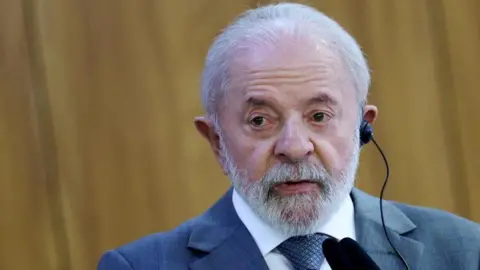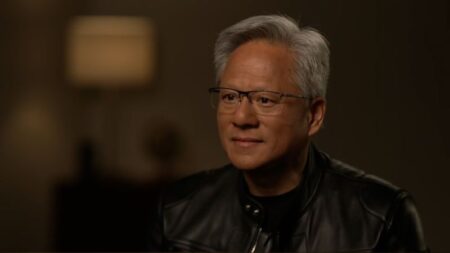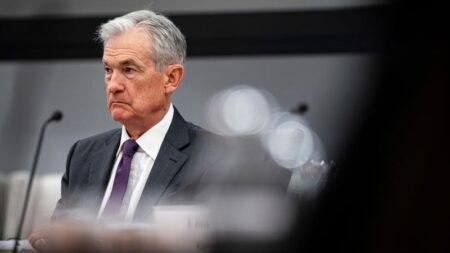The ongoing tensions between Brazil and the United States have escalated following a recent announcement from U.S. President Donald Trump. In a bold move, Trump threatened to impose a staggering 50% import tariff on Brazilian goods, igniting a fiery response from Brazilian President Luiz Inácio Lula da Silva. The proposed tariffs are set to take effect on August 1, 2025, and are purportedly linked to Brazil’s handling of matters concerning former President Jair Bolsonaro, who is currently embroiled in legal troubles and facing accusations of attempting to stage a coup after his defeat to Lula in the 2022 elections.
In his response, Lula emphasized Brazil’s status as a sovereign nation, vowing to match any tariffs imposed by the United States. This episode reflects deeper geopolitical and economic tensions, not only focusing on trade matters but also touching on the contentious political climate surrounding former leader Bolsonaro. Trump’s letter to Lula specifically cited Bolsonaro’s treatment as the justification for the potential tariff hike, which he described in alarming terms, igniting a broader debate over the nature of trade relations between the two countries.
Bolsonaro remains an influential figure in Brazil despite his legal challenges, and Trump’s reference to him as “a highly respected leader throughout the world” echoes a longstanding camaraderie between the two leaders. Trump’s defense of Bolsonaro and his accusations of a “witch hunt” against the former president have elicited further backlash from Lula’s administration, who remain committed to pursuing justice regarding Bolsonaro’s alleged transgressions. In light of these developments, Brazil’s reaction signifies not merely a defense of its economic interests but also a pushback against perceived foreign influence in its domestic affairs.
The proposed tariff would be a pivotal shift, with the current tariff rate at 10%, leading to concerns that this drastic increase could have profound implications for Brazil’s economy. As the second-largest trade partner of the U.S. after China, Brazil would stand to face significant economic repercussions should these tariffs come into play. Lula was quick to counter Trump’s claims, asserting that the assertion of a trade deficit favoring the United States was “inaccurate.” Supporting his viewpoint, Lula cited U.S. government data indicating a goods trade surplus of $7.4 billion in favor of the U.S. in 2024, which contradicts Trump’s narrative.
Trade between the two nations consists of a variety of commodities; while the U.S. exports mineral fuels, aircraft, and machinery to Brazil, it imports vital resources such as gas, petroleum, iron, and coffee from the South American country. This complex relationship underscores the intricacies involved in any potential trade war that would arise from the tariffs, hinting at a broader geopolitical strategy at play.
Beyond economic ramifications, one pivotal element of Trump’s tariffs also includes references to a clash over social media regulations and censorship that he claims Brazil has imposed on U.S. platforms. Lula’s justification for these regulations reflects Brazil’s societal values, with an emphasis on rejecting hate speech and protecting democracy. Consequently, Trump’s overtly political rhetoric may unexpectedly bolster Lula’s position, as noted by experts who argue that leaders facing external pressure often emerge strengthened domestically.
In conclusion, this unfolding situation illustrates the fragility of international relations, especially regarding trade politics. As both leaders navigate this turbulent terrain, further developments are likely to shape not just Brazil-U.S. relations but also the global economic landscape, drawing in other nations facing similar threats from U.S. tariff policies. It remains to be seen how both Lula and Trump will maneuver in these choppy waters, but one thing is certain: the stakes are incredibly high, with profound implications for trade, politics, and international diplomacy.









